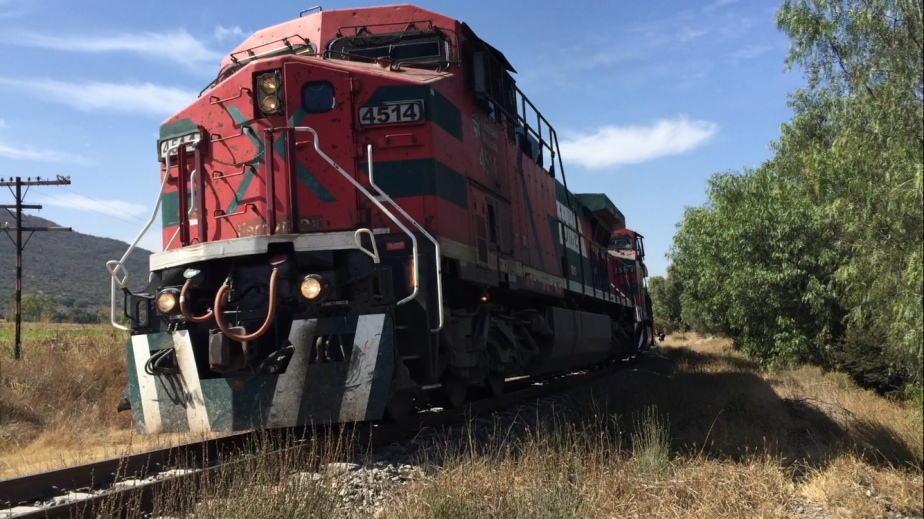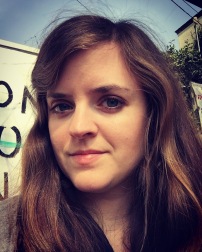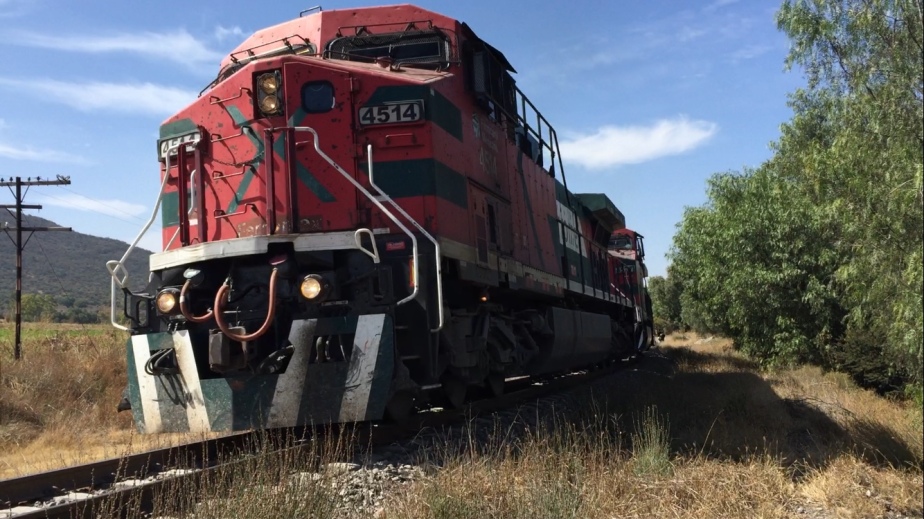Just a week ago in Mexico City, we experienced another series of earthquakes. There was little or no damage here where I am, but it was still scary given my memories of the September earthquakes. In honor of these recent earth-shakings, I’m finally getting around to publishing something I wrote about the ones a few months ago.
*****

On September 19, there was an earthquake of a 7.1 magnitude that struck Mexico, with the epicenter 75 miles/120 km away from where I live. This was the second large-scale earthquake in two weeks. Both caused great destruction, but 19-S’s destruction was closer to where I live, with dozens of buildings collapsed in Mexico City, thousands more condemned, and hundreds of deaths in the whole region.
I was fortunate in many ways: I was at home when it happened, and the minor damages that happened to my building were repaired within a few hours. Everyone I know was safe after the earthquake, although a colleague and his family did lose their home. Despite my luck, it was still a very significant experience for me and one I won’t soon forget.
There are many bad ways to respond to a disaster or any tragedy. Among them, is the idea “everything happens for a reason” or “this is God’s will” or even worse, “this is God’s punishment of you for your sins.”
I do not think everything happens for a reason. Most things just happen—whether as direct effects of the choices of human beings or because of biological and scientific processes—and we have to deal with those events and decide what the meaning will be. I do not think suffering is God’s will. I do not believe God wishes suffering upon us. I do not think that God punishes sin through destruction. Events like earthquakes and hurricanes are naturally-occurring phenomenon that are a part of how the Earth works.
While I do not think that tragedy is something that God wills, I do think that these sorts of events can be important moments for us. They shake us awake. They make us realize things we didn’t realize before. They show us things we may not have noticed otherwise. These are often moments of great pain, trauma, and loss. And sometimes, they can also be moments of learning.
I can’t prescribe what this event’s wake up calls were for other people; I can only mention what I myself have realized through this experience:
- The Earth inspires awe, and we should be concerned about how we treat it. After the earthquake, while I sat alone in my house without cell phone battery or electricity waiting for someone to get there to inform me of what had happened, my thoughts immediately turned to the Earth. With all the hurricanes and earthquakes of the recent days, I was impacted by the destructive (creative) power of the Earth and I was humbled and ashamed how humans contributed to destroying our benevolent place of residence.
- Sometimes I can’t be there. My body’s reaction to the earthquake was to get sick straightaway. The stress was too much for it, and it shut down via a cold. Once the power came back on at 9 pm and I actually learned about the magnitude of what had happened and what there was to be done, my body said, “No. You can’t go out there.” It was hard for me to stay inside while the rest of the city was coming together to rescue people trapped and to support those who had lost their homes, but I knew my sick body would just be in the way. Staying inside felt similar to the feeling I get when I see people in the U.S. taking to the streets (literally or figuratively) to protest the injustices happening: I want to join, but I’m not able to be there. Sometimes I can’t be there physically, and I have to find other ways of getting involved.
- I am grateful for my life and for the lives of my friends and family. A few days after the earthquake, I started crying out of the blue. I cried because of the gravity of what I had lived through—the death and the destruction that was so close to me yet that I had somehow evaded. I was overwhelmed with gratitude for my own life and for the lives of my friends, and I felt led to tell them so. In some ways, it seems hard to have fun after such a tragedy, but it has also been important to celebrate the life and friendship that we’ve all been given.
- Human beings are capable of so much when we work together for good. Without a doubt, people in Mexico really came together to help their communities (and beyond). Immediately, regular people went to work moving debris and helping get survivors out of collapsed buildings. With the power out, young people began directing traffic. Professionals from different fields (doctors, nurses, psychologists, engineers, architects, lawyers) offered their services for free. Churches, schools, and other organizations set up donation centers to collect food and hygiene items for those affected. Local hardware stores and pharmacies sold their products at cost for relief efforts. There were many reports of there being too many volunteers in some places. The power of the people is inspiring.
- You can’t always be prepared. Being prepared is exhausting. The day of the earthquake, a lot of information came out about how we could prepare ourselves for future aftershocks or other earthquakes. Make an emergency backpack with a first aid kit, water, canned food, a blanket, and important documents. Leave a pan on the edge of a table so it will fall and wake you up during an aftershock. Keep a jacket and shoes handy. Always have your phone charged and have a back up battery charger. For a few days after the earthquake, I was obsessed with being prepared. I followed the above advice. I started to worry if I couldn’t find my shoes in any given moment. I was obsessive about keeping my phone charged (my phone had lost charge shortly after the earthquake, so I had learned my lesson). Even now, as I walk down the street or go to a new place, I think, “What would I do if an earthquake happened right now?” and I take note of any cables or tall buildings and look for the familiar earthquake gathering place symbols. In all my efforts to be prepared, I quickly realized that being constantly alert and prepared was exhausting. Life fights to get back to some sense of normalcy. My feet have to go barefoot at some point. My phone will lose its charge.
- I can channel my gifts and my training. Back in March I went to a training by the United Methodist Committee on Relief (UMCOR). I went because I work with ministries related to migrants, and I learned a bit about how we could partner on migration-related projects, but I also learned a ton more about disasters, disaster relief, and disaster prevention. At the time, I did not know that all that information about disasters and relief would prove as helpful as it has to me and my community after the earthquake. It has been nice to share my knowledge and written resources with the team from la Comunidad Teológica de México as we develop and implement a disaster response program. Being bilingual has also been very helpful in this work, since many disaster relief funding organizations speak primarily English and I have been able to translate important documents to send to those organizations.
This tragedy calls to mind the passage in Mark 13 in which Jesus warns listeners to “Beware, keep alert.” At the beginning of the chapter, Jesus says that the temple will be destroyed. When some disciples ask more about this destruction, he also warns of wars, famines, and even earthquakes (!). He says that his disciples will be put on trial and beaten and will have to bear witness to the gospel. Their family members will die, and they will be hated. During these and many more tribulations, they should always be “on guard” and wary of those who claim to know the truth. After these difficulties, “they will see the Son of Man coming in clouds with great power and glory.” Jesus finishes saying,
“Beware, keep alert; for you do not know when the time will come. It is like a man going on a journey, when he leaves home and puts his slaves in charge, each with his work, and commands the doorkeeper to be on watch. Therefore, keep awake—for you do not know when the master of the house will come… or else he may find you asleep when he comes suddenly.”
In this passage, Jesus warns us of the suffering that is a part of life. Wars, famine, earthquakes, people who are against us, family members that die… and much more. In the past several months, this hemisphere alone has seen great tragedy—hurricanes, earthquakes, mass shootings, and more. In the midst of the difficulties of life, we have to be “on guard.” We have to beware, be alert. Many people will try to claim they know the truth about God and the world, but we have to be cautious about who we trust and believe. Do we believe those who claim our suffering as punishment for the sins they impose on us? Or do we make our own meaning and draw our own realizations from our experiences?
Jesus cautions us to be awake and alert and even to leave space for hope (leave open the possibility of Jesus coming in on the clouds). As I discovered after the earthquake, it’s extremely difficult to always be prepared for the next thing coming our way. We can’t always be alert or awake or “woke.” The doorkeeper for the man’s house cannot stay awake all night every night until the man comes home.
It’s hard to maintain a state of constant awareness, especially during this time of social media and a 24-hour news cycle. Sometimes we need to take a break and re-center and de-stress. But I think being prepared isn’t that you always know where your shoes are, but rather that you’re always open to being shaken awake when you fall asleep.
We can’t always be alert, but we must always be willing to be awakened by our own experiences and by the world around us. We must always let our experiences move and shape us. But we must also take care of ourselves in the midst of our alertness.
What will you learn from tragedy? How will you take care of yourself in your times of tribulation? How will you see the hope that appears even during these difficult times?

Amanda Cherry
GMF International, Class of 2016-2018
Mexico
#3022198







